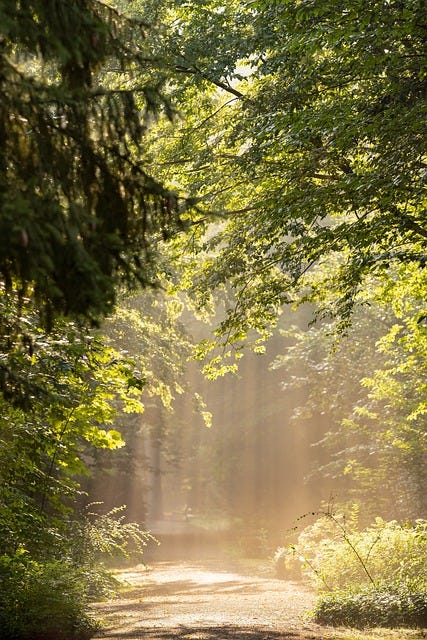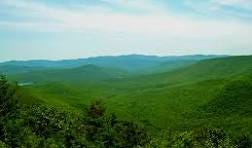The World Is Too Much With Us
By William Wordsworth
The world is too much with us; late and soon,
Getting and spending, we lay waste our powers;—
Little we see in Nature that is ours;
We have given our hearts away, a sordid boon!
This Sea that bares her bosom to the moon;
The winds that will be howling at all hours,
And are up-gathered now like sleeping flowers;
For this, for everything, we are out of tune;
It moves us not. Great God! I’d rather be
A Pagan suckled in a creed outworn;
So might I, standing on this pleasant lea,
Have glimpses that would make me less forlorn;
Have sight of Proteus rising from the Sea;
Or hear old Triton blow his wreathèd horn.
The Industrial Revolution changed everything. We went from being primarily agricultural, with most of the population living in rural areas, to urban, with most people living in cities remote from anything resembling the natural world. I remember growing up in the Bronx in New York City feeling like everything was gray and dull. There were no trees, just apartment buildings. It was only when we drove into the Catskill Mountains that we had an opportunity to experience nature in it’s full beauty. For me, the drive home always felt depressing.
This poem, The World is Too Much With Us, by William Wordsworth, is a quiet and heartfelt cry. He is telling us that the world has become too much for us, not in the sense that it is overwhelming or frightening, but in how we are too busy with things that do not really matter. We spend so much time working, buying, collecting, and chasing after money and possessions that we have lost a part of ourselves. He says we are wasting the best parts of who we are.
Wordsworth believes we are no longer connected to the natural world. The Sea, the moon, the wind, the flowers, and all the beauty of Nature no longer touch our hearts the way they once did. We are no longer in tune with the earth around us. It does not move us. It does not stir anything deep inside. There is a disconnection between humanity and Nature caused by materialism and industrialization.
He mourns this loss. He feels sad and lonely because of it. So much so that he says he would rather believe in old, forgotten gods of Nature than live in a world where everything is cold, empty, and disconnected. He might feel less alone if he could believe again in magical sea gods like Proteus or Triton. He might be able to see the wonder in the world again and feel a sense of belonging.
In simple words, this poem is about how we have turned away from the beauty and power of Nature. We have forgotten how to feel amazed. We have given our hearts to things that do not nourish our souls. Wordsworth is longing to feel alive again, to feel wonder, to feel the deep music of the earth and sky that once made people feel part of something sacred and whole.
It is a soft and aching reminder to stop for a moment, to look around us, and to find again the beauty that still waits for us in the wind, the Sea, the stars, and the quiet rhythms of Nature.
This poem speaks even louder today than it did in Wordsworth’s time.
When he wrote these words, he was already feeling the effects of early industrial life pulling people away from the natural world. But now, so many years later, the disconnection he feared has grown even deeper. Today, the earth is crying out from the damage we’ve done. Forests are disappearing, oceans are warming, animals are vanishing, and the air we breathe is becoming harder to trust. We have not only turned away from Nature in our hearts, but we have also harmed it with our hands.
Wordsworth’s poem becomes a gentle warning and a deep sorrow. He wasn’t just saying we ignore the beauty of Nature. He was saying we’ve traded something sacred for something shallow. And now, in our time, we see the cost more clearly than ever. Our endless wanting, our rushing to get more and spend more, continues to wound the earth. And like the poet, many of us feel something is missing but don’t always know what it is. It may be that same sense of wonder and belonging that comes from being close to the natural world.
His words carry a message for today: to slow down and notice the Sea, sky, trees, and wind. They ask us to care and to remember that we are not separate from the earth but part of it. The more we forget that the more we lose—inside and out.
This poem is not only a song of loss. It is also a quiet invitation. An invitation to remember what matters and to find our way back to the world that still waits for us with open arms.









Hi Allan—Thanks for sharing this post. It reminds me of “Last Child in the Woods” by Richard Louv
Nature calms me down every time. Sights and sounds…